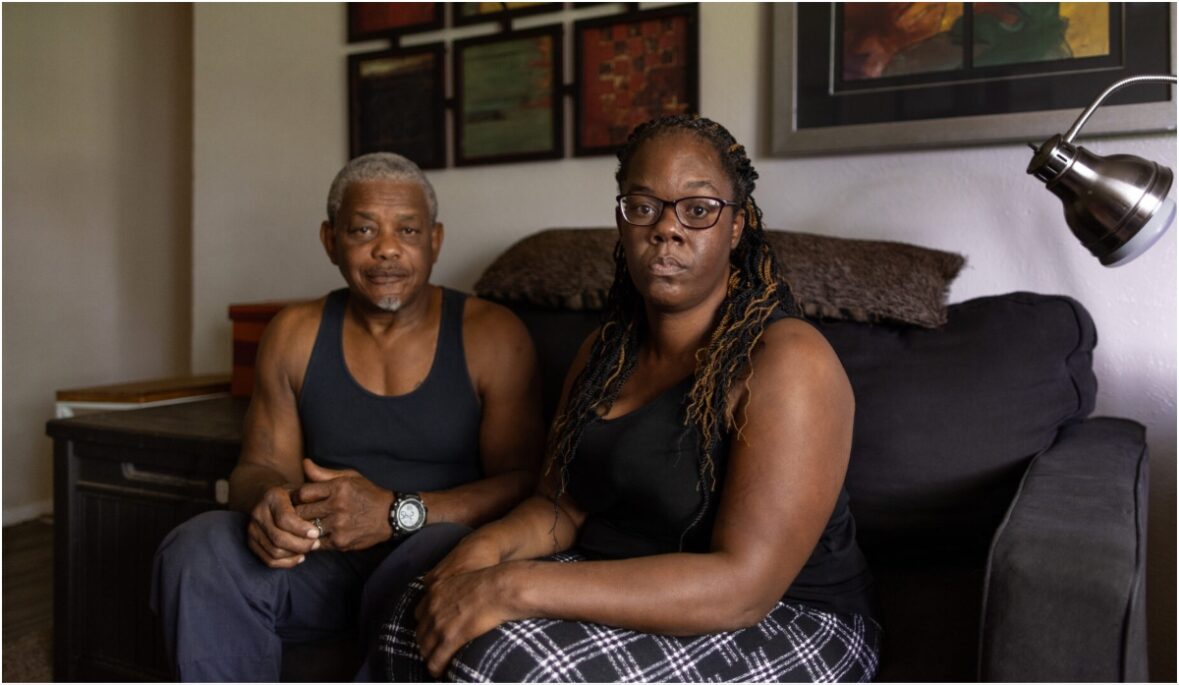A Black mother in the Dallas area who was mistakenly targeted during a no-knock raid at the wrong house five years ago has filed a second appeal after her civil lawsuit was thrown out by the Fifth Circuit in April.
The blundered siege on Karen Jimerson’s home in Waxahachie, Texas, on March 27, 2019, led to a terrifying ordeal where SWAT team troops smashed the windows of her home, detonated a flashbang, and forced the woman and her young children to the floor at gunpoint before realizing their mistake.
Despite the police’s colossal miscalculation, the three-judge panel of the Fifth Circuit ruled that the commander of the military-style raid could not reasonably have known that he needed to ensure he had the correct address before ordering the raid, and the case was dismissed on the grounds of qualified immunity.

Qualified immunity is a legal doctrine that protects government officials from being held personally liable for constitutional violations unless their actions violate clearly established law. It shields officials from civil lawsuits unless their conduct violates a “clearly established” statutory or constitutional right of which a reasonable person would have known.
Through her attorneys, Jimerson expressed disbelief over the court’s ruling, stating that double-checking an address is a “basic life skill,” akin to recognizing distinguishing features of a property while emphasizing that the Supreme Court shouldn’t be required to explain this.
Jimerson’s attorneys have asked the full Fifth Circuit en banc panel to reconsider the case while vowing to take the action to the Supreme Court, which has reversed several previous rulings by the Fifth Circuit due to clear constitutional violations.
Jimerson’s lawsuit, obtained by Atlanta Black Star, cites violations of the Fourth Amendment, which protects against unreasonable searches and seizures, and requires that warrants be supported by probable cause and describe with particularity the place to be searched and the persons or items to be seized.
The action further claims that Lt. Mike Lewis had assembled the raid team at the wrong house when he realized the error at the last moment. He then did nothing to confirm the address of the real target—a suspected stash house to the right of where the officers were assembled. Jimerson’s house was on the cops’ left.
A bright porch light at a neighboring home made it difficult for police to see the address, and instead of taking a closer look, Lewis guessed wrong and chose the house on the left, the lawsuit states.
The warrant indicated that there should have been a fence blocking the front porch and garage of the suspect house, however, the residence they went to didn’t have a fence, front porch, nor a garage.
Instead, the officers marched up a wheelchair ramp that was never mentioned in arrest papers and reached the front door of Jimerson’s home before crashing inside as the children were sound asleep.
The cacophony of shattered glass, explosions, shouting, and weapons being readied echoed through the house, jarring everyone awake to a nightmare with guns aimed at them.
Jimerson, who had just gotten out of the shower, was confronted by officers while still in the bathroom, and she was ordered to get face down.
It was only then that one of the officers shouted, “Wrong house!” — which ended the siege without shots fired, but the family was still severely shaken.
Lewis later admitted that the raid violated the family’s constitutional rights. Still, the three-judge panel from the Fifth Circuit Court ruled the officer could not be legally held accountable for the mishap.
The judges concluded that while the Supreme Court says officers must make a “reasonable effort” to be sure they have the correct details before a raid, it was not “clearly established” that Lewis was required to do this.
The court noted that Lewis’ actions were excusable because he did take “some steps” to check the details before the raid, which Jimerson described as an outrageous assessment.
“The panel’s decision departs from prior Fifth Circuit precedent and four other circuit courts that have ruled that Garrison means what it says. The decision also departs from common sense,” said a statement from Jimerson’s attorney, Jared McClain, with the Institute of Justice.
McClain argues that Lewis had a copy of the warrant with a description of the target house and plenty of time to double-check those details before ordering the raid.
“His mistake was as preventable as it was egregious,” McClain wrote.


